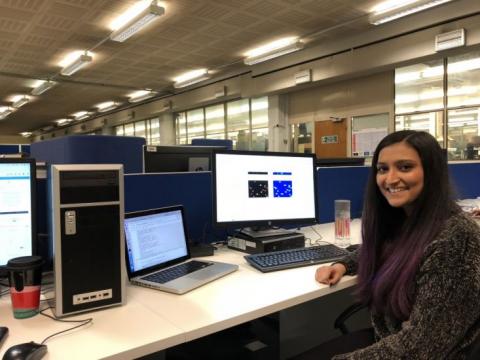“What do you want to be when you grow up?” It’s a question asked many times throughout the early stages of our lives by just about everyone in a young person’s circle: parents, teachers and friends. It is often the ambitions and dreams we carry that shape our choices and daily decisions, setting us on our individual paths. But what if you don’t know what you want to be?
This was the case for me throughout high school. I’ve always preferred the sciences, and maths was my favourite subject from primary school through to A level. But when asked the dreaded “career question”, I didn’t have a concise answer – just that I’d probably end up in a scientific field. So on that basis, I decided to study biology, chemistry, physics and maths at A level.
Through high school and sixth form, I didn’t really experience the biases and inequality we are familiar with today.
Growing up in Wolverhampton meant that I interacted with a diverse range of people, including the students at school. My classes had about equal numbers of male and female students and, most surprisingly, my small A-level physics class consisted of three female students and three male students.
It was clear that physics and maths were my strongest and most favoured subjects, so those were the courses I researched to study at university.
My A-level physics teacher played a large role in my course choice. He not only encouraged group discussion in class but also introduced us to physics beyond the classroom.
We regularly attended a public lecture series at the University of Birmingham. This provided an insight into the world of higher education and was my first experience of full university lectures. As a first-generation higher education student, these occasions formed a vital introduction to the university life I was about to be immersed in.
After arriving at the University of Liverpool in September 2013 to begin my physics degree, I soon began to notice that there were few students like me: female and of Punjabi, Indian heritage. My grandparents grew up without the opportunity to go to school, which made the importance of the opportunity I enjoyed even greater.
I’m now in the second year of my PhD, and I absolutely love my project. I work on understanding the physics and biology that underpins the comet assay, a technique that is used to determine the level of damage caused to the DNA of cells. This will help to determine which radiotherapy techniques are better in killing cancer cells.
It’s been a very steep learning curve. I’ve had to quickly learn time management because I work on different things at once, and also, most importantly, had to discover how to balance it all. It’s also during my PhD where I have taken a more active role in the effort to achieve equality in science.
I’ve been a part of various outreach activities, including SciJam, a Science Jamboree held at the university over the past two years. It focuses on science activities for Beaver, Cub and Scout groups, helping them achieve their science badges. It’s been such a great experience engaging with children who are fascinated by science and want to take part in new activities.
Soon I will be moderating an outreach event at Liverpool Arena for more than 200 children. It will be live-streamed around the world, with speakers from CERN and major UK universities aiming to inspire the next generation to consider a career in science and engineering.
Earlier this year, I was fortunate enough to contribute to the launch of Professor Dame Jocelyn Bell Burnell’s Graduate Scholarship Fund, which offers PhD scholarships to students from groups that are currently under-represented in physics.
This type of fund is vitally important because it not only helps students financially, but it also starts a conversation around diversity in physics by highlighting students from minority backgrounds who are out there doing it despite the barriers they face. It was an honour to meet Jocelyn and to discuss the issues that we need to tackle, such as highlighting more female role models in senior academic positions.
I believe it is a social construct that subjects such as engineering and physics are more “suited” to men. It starts from a young age, and to tackle it we need to move away from things such as gendered toys and career aspirations.
We must allow ourselves and our children to break free from the boxes that society places us into from birth. To give ourselves the freedom to pursue whatever excites us and decide what we want to be when we grow up, is our own choice and not an expectation.
Read more: What can you do with a physics degree?

Comments